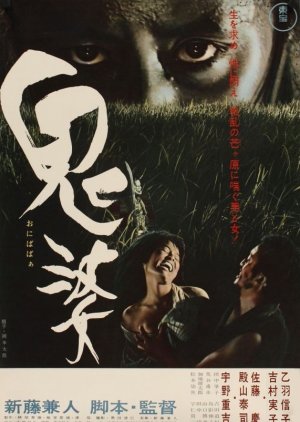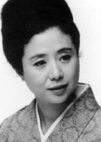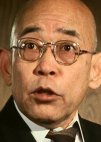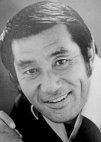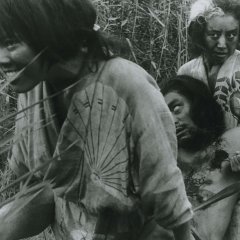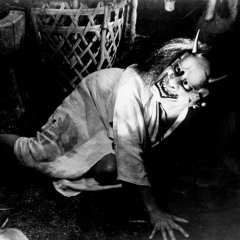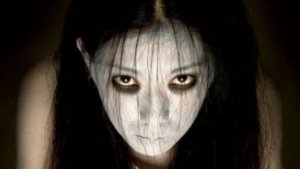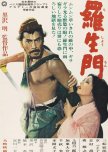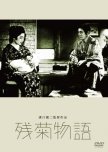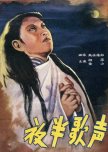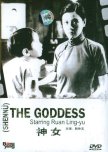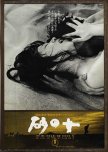 ASK MDL: Parental Ties
ASK MDL: Parental Ties - Français
- Português (Brasil)
- English
- magyar / magyar nyelv
- Titre original: 鬼婆
- Aussi connu sous le nom de: Demon Hag
- Scénariste et Réalisateur: Shindo Kaneto
- Genres: Historique, Horreur, Drame, Guerre
Distribution et équipes
- Yoshimura Jitsuko[Daughter-in-law]Rôle principal
- Otowa Nobuko Rôle principal
- Sato KeiHachiRôle Secondaire
- Tonoyama TaijiUshiRôle Secondaire
- Uno Jukichi[Demon warlord]Rôle Secondaire
- Tanaka Hiroshi[Riding Attendant B]Rôle Secondaire
Critiques

Cette critique peut contenir des spoilers
"As if the Earth has been turned upside down"
In Shindo Kaneto's Onibaba, the viewer is left wondering who is the demon? In a time of war between two emperors, the poorly armed peasants pressed into military service suffered as well as the women, children, and elderly left to face violence and starvation at home. During this time a mother-in-law and daughter-in-law took drastic measures in order to survive.As the women were not given names, I'll address them as MIL and DIL. Isolated near a swampy pond surrounded by tall grasses the women have made the terrible decision to murder lost or injured samurai and sell their armor and weaponry for food. They dump the bodies in a deep dry well within the sea of grass. One evening a neighbor returns after deserting the second army he was forced into. He claims that he escaped when farmers killed MIL's son. He was given a name, Hachi, but since the women have no names I'll identify him by HD (Horny Dude). HD has fallen as badly as the women for he showed up in the clothes he'd killed a priest for. HD desires DIL and slowly she gives into her sexual appetite and begins meeting him at night after MIL falls asleep. MIL tells him to stay away from DIL until they are able to harvest a crop. She can't murder samurai by herself and without DIL, she'll starve. HD tell her that he will just stay "friends" with DIL until then. When DIL is at HD's hut having a friendly mingling, a lost samurai general appears at the women's hut and orders MIL to guide him out of the grasses. He wears a demonic mask which he says is to protect his handsome face from being marred in battle. MIL tricks him into falling into the death hole and then climbs down to retrieve his gear and the mask. The mask, however, is adhered to his face and when she finally pries it off, she sees his grossly disfigured countenance. MIL tells DIL stories at night about hell and demons and the punishment for unmarried people who give into their lust. Wearing the mask, she terrifies DIL in the tall grass as the young woman is sneaking to HD's hut at night. After wearing the mask during a rain storm MIL discovers the gruesome curse for herself.
Onibaba wasn't a horror movie in the classic sense. It felt more like an episode of the Twilight Zone where karma played a trick on someone daring to taunt forces beyond their control. The tall grass acted as a fourth main character, waving and creaking haunting howls in the wind. Like predators slinking through them, the women pounced on the unaware unseen. HD and DIL has sexual trysts hiding in the reedy arms as well. Fair warning there was nudity in numerous scenes.
Onibaba explored how society and morality breakdown in the face of starvation and death. Murder and stealing no longer seemed wrong. Hunger for food and sex became overriding desires. While MIL had almost masklike features of exaggerated eyebrows, extreme makeup and Bride of Frankenstein hair coloring all before wearing the mask, the other characters behaved as immorally. Lust was the least of their sins. Ironically, the women never seemed to grasp that the man they had hoped to come home had fallen prey to civilians just like themselves trying to survive. Prolonged war leaves a society and its rules in tatters, making demons of many without the need to physically transform. But weren't the greater demons the ones who started the wars in their insatiable need for more power and voracious greed for more wealth?
10/2/23
Cet avis était-il utile?
Recommandations
There have been no recommendations submitted. Be the first and add one.

